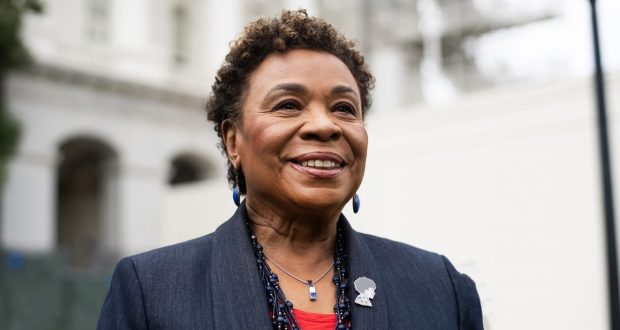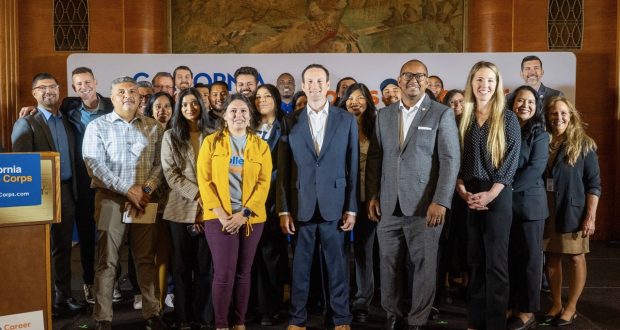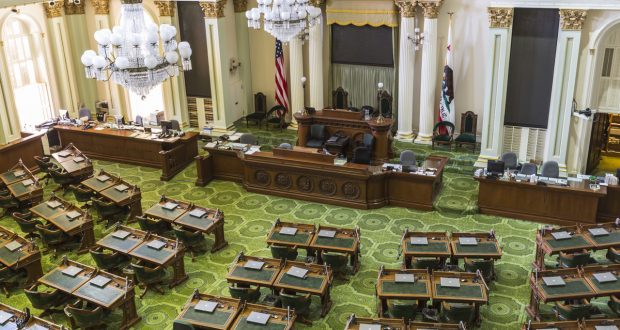By Antonio Ray Harvey | California Black Media
The California Legislative Black Caucus (CLBC) has unveiled its 2025 legislative priorities. Titled the the “Road to Repair 2025,” the bill package continues the CLBC’s effort to address the generational harm caused by slavery and systemic discrimination against Black Californians.
Informed by the recommendations of the California Reparation Task Force, the CLBC leadership says the package includes a series of legislative measures that aim to promote equity, economic opportunity, and justice for Black communities.
“The Road to Repair 2025” package is about addressing the centuries of harm inflicted on Black Californians,” said Sen. Akilah Weber Pierson (D-San Diego), Chair of the CLBC. “This is an opportunity to turn the promise of equality into a reality.”
The package highlights efforts to reduce health, wealth, housing, and education disparities. Key proposals include Assembly Bill (AB) 7, which would prioritize higher education admissions for descendants of American chattel slavery, and AB 57, which seeks to allocate home purchase assistance funds to first-time home buyers who are eligible Black Californians.
Weber Pierson, Sen. Laura Richardson (D-Inglewood) and Sen. Lola Smallwood-Cuevas (D-Los Angeles) introduced Senate Bill (SB) 518, which would establish the Bureau of Descendants of American Slavery.
To meet the criteria, SB 518 would require the bureau to contain a genealogy division, a property reclamation division, an education and outreach division, and a legal affairs division.
“When fully implemented, (SB 518) will provide an in-depth database of records of land and property once owned by Black Californians,” Weber-Pierson said. “It will provide families documentation that may help reclaim lost assets or provide historical displacements.”
Other significant measures include SB 503 (Weber Pierson) which aims to regulate artificial intelligence in healthcare to mitigate racial biases, and SB 510 (Richardson), which calls for a comprehensive K-12 curriculum on racial disparities, including slavery and segregation. Another bill proposes requiring the California Department of Corrections and Rehabilitation (CDCR) to develop voluntary work programs for institutional residents.
CLBC Vice Chair Assemblymember Isaac Bryan (D-Ladera Heights) emphasized that the package is part of the CLBC’s ongoing commitment to repair the harms of the past and ensure a more equitable future.
“As we confront socially regressive policies at the national level, California remains committed to standing up for justice and opportunity for all,” said Bryan.
The CLBC is calling on Gov. Gavin Newsom and lawmakers to support these measures, which aim to create long-lasting change for Black communities across the state.
Weber Pierson said the CLBC’s bill package aims to eliminate the generational pain and racial disparities developed from inhuman policies in health, wealth, housing, and education.
The package also includes directing the Department of Financial Protection and Innovation to identify and address ongoing mortgage lending discrimination and require and K-12 curriculum that takes an accurate look at the historic impacts of segregation, slavery, and systemic discrimination.
The package is more than the acknowledgment of past wrongs,” Weber Pierson said. “It’s ensuring a more just and equitable future for everyone. We are committed to working with our colleagues in the legislature, Gov. Newsom, and the people of California to move these policies forward.”
Darlene Crumedy, a Bay Area resident and a member of the Coalition for a Just and Equitable California (CJEC) — a reparations advocacy organization — says she has taken a critical look at the bill package which she says is not “bold and strong enough.”
“Right now, there’s a 30-day wait before they start going through committees and amendments. So, we do want to wait to see if there will be any changes,” said Crumedy, who has participated in many pro-reparations activities across the state.”
“These are the same amendments that Newsom put last year for SB 1403 and Bradford rejected them,” Crumedy said. “This is just cut and paste. It’s just a stall tactic for another two years.”
According to the CLBC, SB 437 (Weber Pierson) would require the Director of Finance to allocate $6 million to the CSU to conduct the research recommended by the Task Force. Newsom had already allocated $12 million in the 2024-2025 budget for the implementation of reparations.
“We will engage in conversations, push for bold solutions and ensure California leads the way in addressing historic wrongs with meaningful action,” Weber Pierson said. “This work will not be easy and change of this magnitude does not happen overnight.”
 Westside Story Newspaper – Online The News of The Empire – Sharing the Quest for Excellence
Westside Story Newspaper – Online The News of The Empire – Sharing the Quest for Excellence





